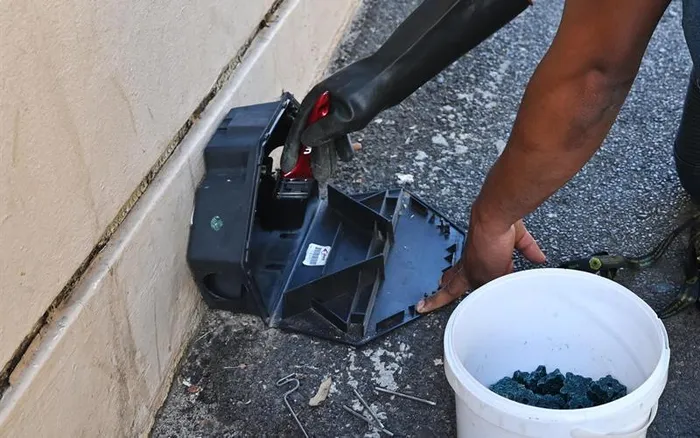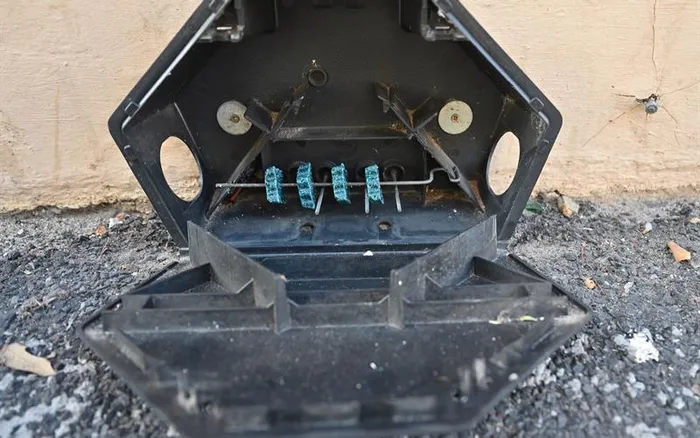Cape Town's urgent battle against the rising rodent population
Environmental Health records 3,616 rodent complaints

City Health staffer changes baiting point.
Image: Supplied
Khayelitsha, Langa, Cross Roads, Parklands and Westridge are the top five areas with the most reported rodents, the City of Cape Town said.
Between July 2024 and March 2025, the City's Environmental Health Practitioners serviced 44 121 block baiting stations and attended to 4 743 rodent complaints across the metro - a 31% increase compared to the previous year.
The biggest increase in complaints were from the Khayelitsha area, and directly linked to a special health education programme encouraging residents to log service requests instead of using illegal pesticides, the City said.
By law, it is the responsibility of property owners and businesses to keep their premises rodent free and in a clean and hygienic state.
"Rodents are vectors of a wide variety of diseases and by controlling these vermin, we are protecting public health, maintaining quality of life and preserving property," said Community Services and Health mayco member, Francine Higham.
"They can also contaminate food and water supplies, which is why rodent control is in the interest of everyone.
"Practitioners provide rodent control services in all areas, but it goes hand in hand with education and awareness around the factors which contribute to an increase in rodents, such as waste management and illegal dumping."

City Health practitioners conduct routine inspections.
Image: Supplied
During April and May, City Health staff increased baiting points, as rodents become more active ahead of winter and start moving indoors for shelter.
City Health practitioners are also conducting routine inspections at all food premises to enforce various regulations and assess vector compliance.
The City encouraged the public to follow these tips to deter rodents:
- Store food in secure containers
- Clean food preparation areas immediately after use
- Make sure rubbish bins are securely closed
- Do not dump waste illegally
- Do not leave uneaten pet food out
- Seal cracks or holes in walls, floors and under doors
Residents are encouraged to avoid using toxic poisons to get rid of pests and instead to report problems to the City’s Call Centre, the nearest clinic or Environmental Health Office.
Cape Argus
Related Topics:
